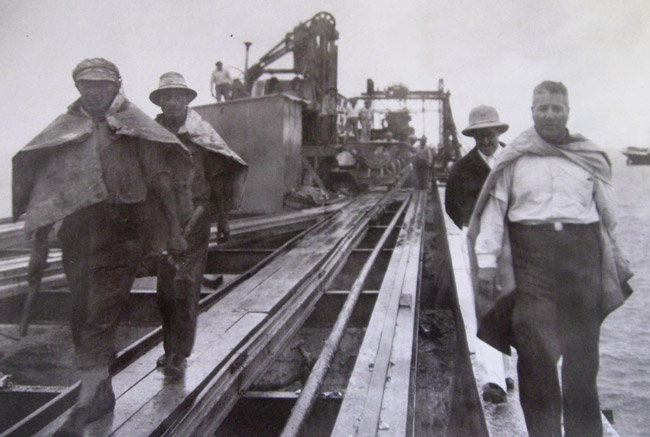'Engineering Mexico' Will Join Two Campuses by Simulcast

JONESBORO – While cooperative efforts between Arkansas State University and A-State Campus Queretaro in Mexico have been ongoing for several months, a program Thursday, March 7, is believed to be their first joint event.
Students and faculty on both campuses will participate in an interactive simulcast presentation, "Engineering Mexico," which is about the legacy of Modesto Rolland and U.S.-Mexico relations.
Presenting at A-State will be Dr. Justin Castro, an associate professor of history who is a scholar on Rolland and his impact in Mexico.
The presenter at Queretaro will be Jorge C. Rolland, a prominent engineer and Modesto Rolland's grandson.
Beginning at 12:30 p.m., the hour-long program is open to the public. Sponsors are the College of Liberal Arts and Communication and College of Engineering and Computer Science, and A-State Campus Queretaro.
"We want to build connections between the Jonesboro and Queretaro campuses. We also want to build connections between the physical sciences and the humanities and social sciences," Castro explained. "This event does both by being simulcast from both campuses and having members of different disciplines participate. Modesto Rolland was an important engineer but also a diplomat, newspaper editor, government official, and essayist who himself was involved in U.S.-Mexican relations, including educational training and exchanges."
At Jonesboro, those wanting to watch the simulcast will gather in the Humanities and Social Sciences Building, Room 1041 (GPS 2401 Aggie Road). At Queretaro, participants will gather in the Main Academic Building, Room A100.
"The lecture provides an opportunity for students on the Jonesboro and Queretaro campuses to have an experience hearing expertise from each campus on a relevant topic," added Dr. Brad Rawlins, professor of strategic communication at A-State and former vice rector at A-State Campus Queretaro. "The story of Modesto Rolland is relevant to us today as we think about the exchange of ideas, technology and innovation in a global economy.
"This is a unique experience we can offer by having a campus in Mexico. At the same time, we hope it will spark further collaborations and interest in the campus among faculty and students. We have only skimmed the surface of the possibilities this campus provides to our students in Arkansas."
Castro has studied Rolland and written about him extensively. A prominent Mexican engineer and government official, Rolland was an early proponent of reinforced-concrete architecture in Mexico and a builder of homes, hotels, waterworks and ports.
"He also designed stadiums, including the largest bull fighting stadium in the world. He served as a diplomat and propagandist in the United States for one of the factions that won during the Mexican Revolution," Castro added. "As a diplomat he worked largely in U.S. progressive circles and worked to limit violence between the U.S. and Mexico. He had a significant influence on U.S. progressives and U.S. public opinion about the Mexican Revolution more broadly.
"In turn, he attempted to bring many progressive ideas into Mexico. Rolland was an important intellectual behind revolutionary agrarian reform policies, and he also later promoted free ports, which was a free trade experiment," the historian continued. "He authored Mexico's first radio broadcasting regulations and was an early promoter of the medium. In the 1930s and 1940s he served as undersecretary of communications and public works and then undersecretary of the national economy. So, he had his hands involved in a great number of Mexico's developmental schemes from 1905-1950. He was also at times belligerent and a poor father, husband, and boss."
# # #





